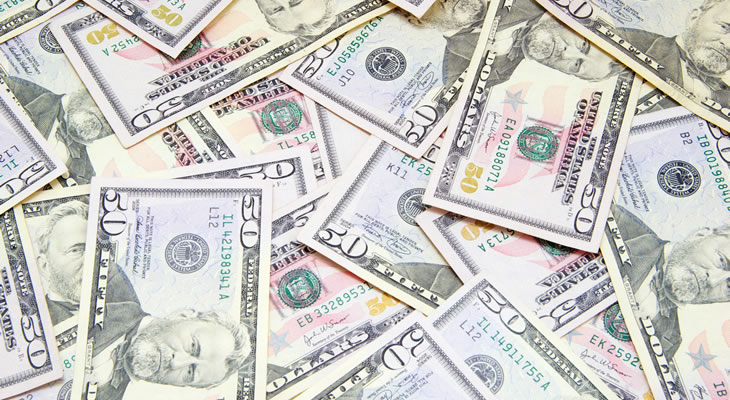On Tuesday the Pound Sterling to US Dollar (GBP/USD) exchange rate firmed as mixed data out of the USA and heightened risk aversion weighed upon the US currency.
The Pound Sterling to US Dollar (GBP/USD) exchange rate firmed on Monday as concerns over steep declines in Japanese equities markets and tumbling oil prices increased demand for safe haven assets. The ‘Greenback’ is forecast to make gains later in the session due to a lack of market moving UK data and expectations that industrial production in the USA improved in November.
Last week the Pound Sterling to US Dollar (GBP/USD) exchange rate spent most of last week trading close to a 15-month low as the American currency found support from a run of strong data releases and rising expectations that the Federal Reserve will soon an announce a rise in interest rates.
Pound Sterling to US Dollar (GBP/USD) Exchange Rate Pared Declines
A selloff of the US currency saw the ‘Greenback’ retreat from earlier multi-year highs as the week progressed. Investors embarked on a round of profit taking as the Dollar found support from strong jobs data. An impressive US advance retail sales result also lent the US Dollar support.
Industry experts from Capital Economics noted; ‘The strong rise in retail sales in November shows that we were right to dismiss all the reports that holiday sales have been weak. The truth is that the rapid rises in employment mean that this holiday shopping season will be the best in nine years.’
Concerns over falling oil prices and the possibility of political turmoil in Greece spurred investors to take profits and benefit from the recent highs.
The downturn in the US Dollar prompted this remark from analyst Joe Manimbo; ‘The dramatic drop that we’ve seen in oil suggests that it could be a closer call on the Fed and whether or not it ditches its lower rate guidance. This general flight for safety has depressed Treasury yields to the point where it’s pulled the Dollar lower.’
Last Friday the US Dollar eased as the Washington based Department of Labour released a report showing that producer price inflation fell by 0.2% in November, a sharper declined than the 0.1% drop expected by economists. The drop also means that October’s 0.2% rise was wiped out.
Industry expert Jennifer Lee said of the result; ‘Suffice it to say, inflation pressures remain very modest in the US, although less so when one excludes energy, which gives policymakers more wiggle room to hold back.’
Further losses for the ‘Greenback’ were restrained however as the separate University of Michigan consumer confidence index soared to its highest in seven years.
The index increased to a 95-month high of 93.8, a jump from the 88.8 figure recorded in the prior month. The figure also smashed forecasts for a figure of 89.5.
The forward-looking economic outlook sub-index climbed to 86.1 from 79.9 while the economic conditions sub-index rose to 105.7 from 102.7. The 1-year ahead inflation expectations index rose to 2.9% from 2.8% while the 5-year index rose by 0.3 to 2.9%.
Fed Interest Rate Decision to Dominate GBP/USD Exchange Rate Movement
Looking ahead to next week, the most influential event will be Wednesday evening’s Federal Reserve policy meeting.
The Fed is forecast to leave interest rates unchanged at 0.25% but speculation is building that policy makers will adopt a more hawkish stance over the strength of the US economy.
According to EconMatters; ‘The FOMC Meeting Announcement, Forecasts & Chair Press Conference on December 17th should provide more clarity on the rate hike schedule for 2015 as this is the first quarterly FOMC meeting since QE Bond Buying has formally ended. Given that third quarter GDP was revised up to 3.9%, and the Employment numbers this year have been record setting by historical standards (More jobs created on an annual basis in 20 plus years) and there is far too much liquidity in the financial markets as witnessed by both bond and stock prices at essentially record highs at the same time, it is time to start raising interest rates, and fast.’
If so then the ‘Greenback’ will likely strengthen strongly against the Pound and its other major peers, as bets will surely increase that the central bank is edging closer to hiking interest rates.
Also due on the same day is the latest US Core Inflation data and the release of December meeting minutes.
The BoE minutes are not likely to offer much support to the Pound unless they show that policy makers are growing more hawkish and edging closer to raising interest rates.
With a run of negative UK data releases recently, policy makers are likely to be nervous about hiking rates. Some industry experts are not anticipating borrowing costs being altered until at least the end of 2015.

